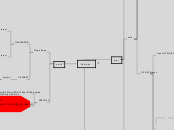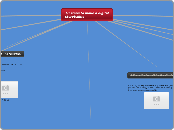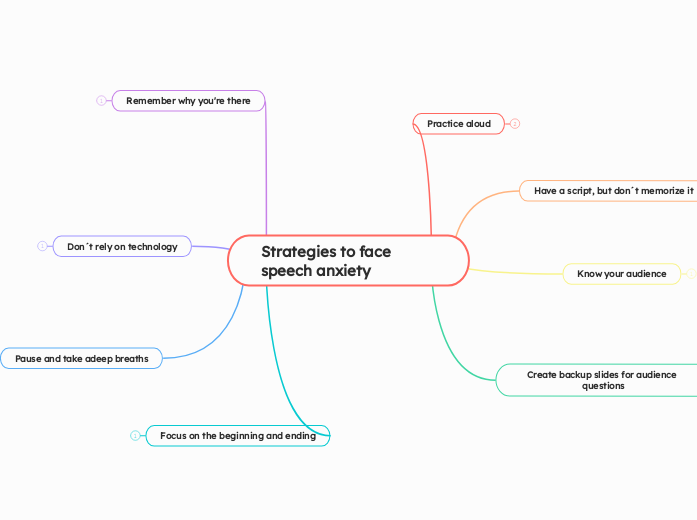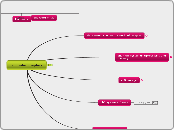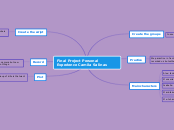SymLink
unity
NOTE:
.dll
DON'T WORK???
Vectrosity.dll fails to find namespace
Vectrosity source symlinks fine
will fail to path towards usb drive
must be on the same drive as unity installation??
PluginRepo
$DEST
$SOURCE
Phsyics2D
ControlFreak
project
Asset/
Project/
(layer tags)
(input settings)
win
mac
script
scheduler
launchd
https://developer.apple.com/library/mac/documentation/MacOSX/Conceptual/BPSystemStartup/Chapters/CreatingLaunchdJobs.html#//apple_ref/doc/uid/TP40001762-104142
(pList)
(rec Property)
KeepAlive
This key specifies whether your daemon launches on-demand or must always be running. It is recommended that you design your daemon to be launched on-demand.
inetdCompatibility
Indicates that your daemon requires a separate instance per incoming connection. This causes launchd to behave like inetd, passing each daemon a single socket that is already connected to the incoming client. (required if your daemon was designed to be launched by inetd; otherwise, must not be included)
ProgramArguments
Contains the arguments used to launch your daemon. (required)
Label
Contains a unique string that identifies your daemon to launchd. (required)
Creating a launchd Property List File
Examples
Emulating inetd
<?xml version="1.0" encoding="UTF-8"?>
<!DOCTYPE plist PUBLIC "-//Apple//DTD PLIST 1.0//EN" "http://www.apple.com/DTDs/PropertyList-1.0.dtd">
<plist version="1.0">
<dict>
<key>Label</key>
<string>com.example.telnetd</string>
<key>ProgramArguments</key>
<array>
<string>/usr/libexec/telnetd</string>
</array>
<key>inetdCompatibility</key>
<dict>
<key>Wait</key>
<false/>
</dict>
<key>Sockets</key>
<dict>
<key>Listeners</key>
<dict>
<key>SockServiceName</key>
<string>telnet</string>
<key>SockType</key>
<string>stream</string>
</dict>
</dict>
</dict>
</plist>
Monitoring a Directory
<?xml version="1.0" encoding="UTF-8"?>
<!DOCTYPE plist PUBLIC "-//Apple//DTD PLIST 1.0//EN" "http://www.apple.com/DTDs/PropertyList-1.0.dtd">
<plist version="1.0">
<dict>
<key>Label</key>
<string>com.example.watchhostconfig</string>
<key>ProgramArguments</key>
<array>
<string>syslog</string>
<string>-s</string>
<string>-l</string>
<string>notice</string>
<string>somebody touched /etc/hostconfig</string>
</array>
<key>WatchPaths</key>
<array>
<string>/etc/hostconfig</string>
</array>
</dict>
</plist>
An additional file system trigger is the notion of a queue directory. The launchd daemon starts your job whenever the given directories are non-empty, and it keeps your job running as long as those directories are not empty:
<?xml version="1.0" encoding="UTF-8"?>
<!DOCTYPE plist PUBLIC "-//Apple//DTD PLIST 1.0//EN" "http://www.apple.com/DTDs/PropertyList-1.0.dtd">
<plist version="1.0">
<dict>
<key>Label</key>
<string>com.example.mailpush</string>
<key>ProgramArguments</key>
<array>
<string>my_custom_mail_push_tool</string>
</array>
<key>QueueDirectories</key>
<array>
<string>/var/spool/mymailqdir</string>
</array>
</dict>
</plist>
Running a Job Periodically
<?xml version="1.0" encoding="UTF-8"?>
<!DOCTYPE plist PUBLIC "-//Apple//DTD PLIST 1.0//EN" "http://www.apple.com/DTDs/PropertyList-1.0.dtd">
<plist version="1.0">
<dict>
<key>Label</key>
<string>com.example.touchsomefile</string>
<key>ProgramArguments</key>
<array>
<string>touch</string>
<string>/tmp/helloworld</string>
</array>
<key>StartInterval</key>
<integer>300</integer>
</dict>
</plist>
specify a calendar-based interval
<?xml version="1.0" encoding="UTF-8"?>
<!DOCTYPE plist PUBLIC "-//Apple//DTD PLIST 1.0//EN" "http://www.apple.com/DTDs/PropertyList-1.0.dtd">
<plist version="1.0">
<dict>
<key>Label</key>
<string>com.example.touchsomefile</string>
<key>ProgramArguments</key>
<array>
<string>touch</string>
<string>/tmp/helloworld</string>
</array>
<key>StartCalendarInterval</key>
<dict>
<key>Minute</key>
<integer>45</integer>
<key>Hour</key>
<integer>13</integer>
<key>Day</key>
<integer>7</integer>
</dict>
</dict>
</plist>
Debugging launchd Jobs
<?xml version="1.0" encoding="UTF-8"?>
<!DOCTYPE plist PUBLIC "-//Apple//DTD PLIST 1.0//EN" "http://www.apple.com/DTDs/PropertyList-1.0.dtd">
<plist version="1.0">
<dict>
<key>Label</key>
<string>com.example.sleep</string>
<key>ProgramArguments</key>
<array>
<string>sleep</string>
<string>100</string>
</array>
<key>StandardOutPath</key>
<string>/var/log/myjob.log</string>
<key>StandardErrorPath</key>
<string>/var/log/myjob.log</string>
<key>Debug</key>
<true/>
<key>SoftResourceLimits</key>
<dict>
<key>Core</key>
<integer>9223372036854775807</integer>
</dict>
<key>HardResourceLimits</key>
<dict>
<key>Core</key>
<integer>9223372036854775807</integer>
</dict>
</dict>
</plist>
Listening on Sockets
<key>Sockets</key>
<dict>
<key>Listeners</key>
<dict>
<key>SockServiceName</key>
<string>bootps</string>
<key>SockType</key>
<string>dgram</string>
<key>SockFamily</key>
<string>IPv4</string>
</dict>
</dict>
Writing a “Hello World!” launchd Job
<?xml version="1.0" encoding="UTF-8"?>
<!DOCTYPE plist PUBLIC "-//Apple//DTD PLIST 1.0//EN" "http://www.apple.com/DTDs/PropertyList-1.0.dtd">
<plist version="1.0">
<dict>
<key>Label</key>
<string>com.example.hello</string>
<key>ProgramArguments</key>
<array>
<string>hello</string>
<string>world</string>
</array>
<key>KeepAlive</key>
<true/>
</dict>
</plist>
// You indicate whether it describes a daemon or agent by the directory you place it in
// To run under launchd, you must provide a configuration property list file for your daemon
(types)
daemons : software tools
/Library/LaunchDaemons
agent : per-user processes
/Library/LaunchAgents
// or LaunchAgents subdirectory of an individual user’s Library directory
(deprecated)
Cron
(file to run)
copy folder
cp -r source destination
// -r == recursive
copy file
cp source destination
updateSymlinkMton(dest, source)
//update symlink from new source
//read from symlink.txt and dereference
while read line; do echo -e "$line"; done < mySymLink.txt
//find symlink at dest and write to file
find /Users/mton/Google\ Drive/Unity/Android_Project/ -type l > mySymLink.txt
cmd
$ rsync
how-to-copy-only-symbolic-links
find /path/to/files -type l -print | \
rsync -av --files-from=- /path/to/files user@targethost:/path
The find command starts at /path/to/files and steps recursively through everything "under" that point. The options to find are conditions that limit what gets output by the -print option. In this case, only things of -type l (symbolic link, according to man find) will be printed to find's "standard output".
These files become the "standard input" of the rsync command's --file-from option.
Give it a shot. I haven't actually tested this, but it seems to me that it should work.
copy symlink
rsync --dry-run -r --copy-links $SOURCE $DEST
flags
--copy-links
--copy-dirlinks
gets just directories
gets all files
//remove --dry-run flag when ready to do for real
rsync -n -a --del -v /Users/mton/GoogleDrive_mt/RemoteWork/BlubberBuster/Enemy_AI/Assets/Shared/__MtonFrameWork /Users/mton/Dropbox/Code/SymLink/Unity/Assets/Shared
rsync –options SrcDir DstDir
(-options)
−−del
//(alias for −−delete−during)
(other)
−−max−delete=NUM (don’t delete more than NUM files)
−−delete−excluded (also delete excluded files from dest dirs)
???
−−delete−after (receiver deletes after xfer, not before)
−−delete−before (receiver deletes before xfer [default])
−−delete (deletes extraneous files from dest dirs)
−−delete−during (receiver deletes during xfer, not before)
(others)
--exclude '.DS_Store'
//Do not copy over any invisible DS_Store files
--ignore-existing
ignore any files that already exist in the destination directory. We don't want to copy a file twice, update or overwrite current files.
–dr
//syncs only directories, no files
-nEvauz
-z
// compression mode can speed up copying by compressing/uncompressing file data before/after being copied.
-u
update mode prevents newer files at the destination directory from being over-written.
//recursive
-a
−a, −−archive >
This is equivalent to −rlptgoD. It is a quick way of saying you want recursion and want to preserve almost everything (with −H being a notable omission). The only exception to the above equivalence is when −−files−from is specified, in which case −r is not implied.
Note that −a does not preserve hardlinks, because finding multiply-linked files is expensive. You must separately specify −H.
//archive mode tells rsync to--essentially--copy files recursively through sub-directories while maintaining permissions.
//equivalent to −rlptgoD
//recursive +
// preserve any symbolic links, preserves file and directory permissions, preserves the timestamp, and preserve the owner and group
-r
–v
// verbose mode tells rsync to output results and messages
-E
// extended-attributes such as Mac-centric ACLs and resource forks will be preserved.
-n
//puts rsync into "dry run" mode. rsync will return a list of files that would have been copied but will not actually copy anything.
EX:
rsync –r -v SrcDir DstDir
$ readlink
pwd -P
//find list of symlinks, cd to directory, pwd???
//returns absolute path of current dir
greadlink -f path
coreutils solution
//sudo brew install coreutils
readlink [path]
//Mac OSX only; on unix use -f flag
//returns absolute path of symlink
$ find
find . -type l
//finds all symlink in current dir
find [path] -type l
//finds all symlink at specified path
$ ln -s SOURCE_DIR DEST_DIR
file
OS X
stored in the HFS+ disk directory
extra "Mac" information == symbolic link.
special file type, creator code, and Finder flag information
plain text files
